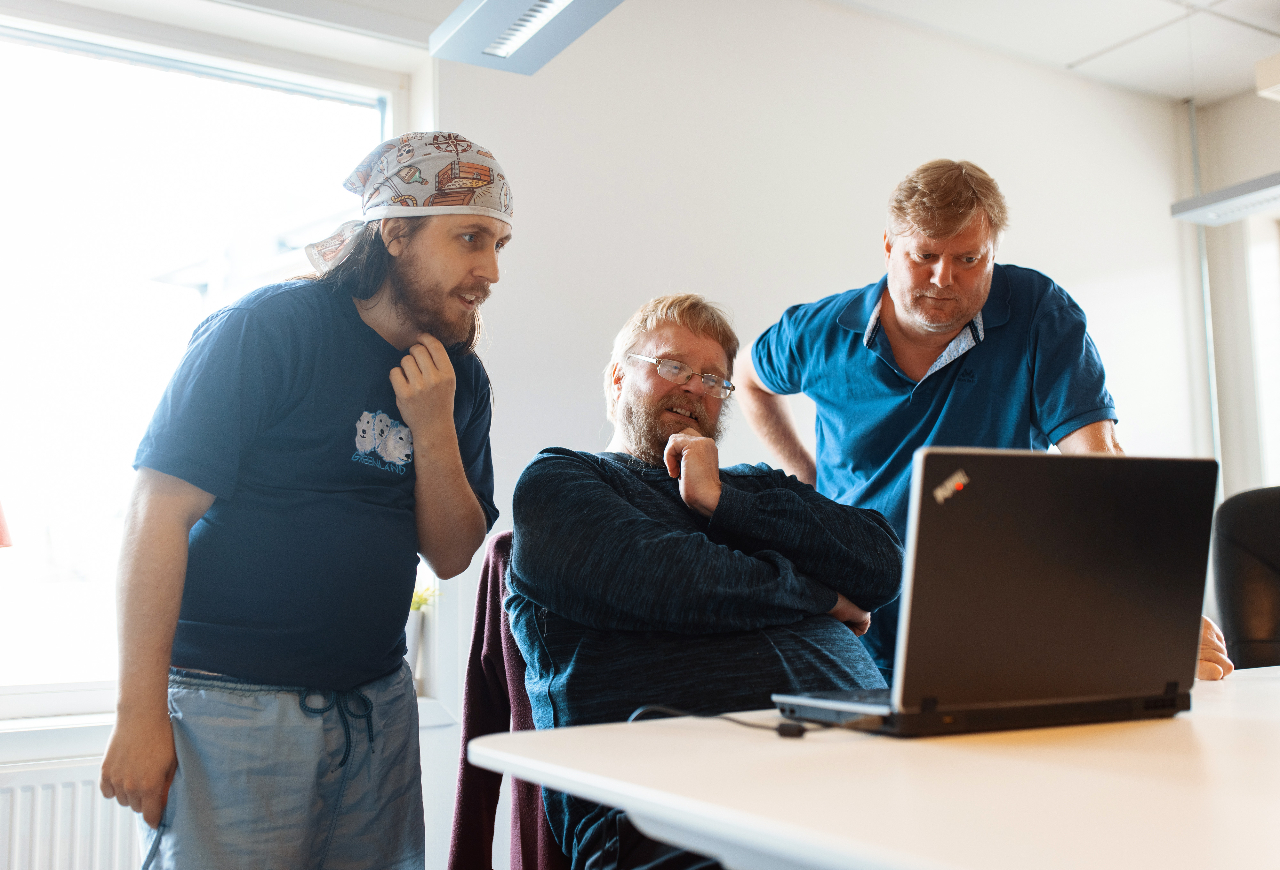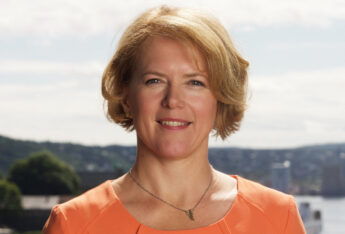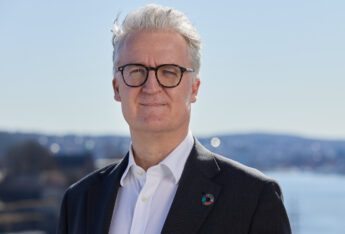The heads of the social impact investment arm of Ferd, the family-owned Norwegian investment company, discuss its diverse range of social impact investments and its desire to drive social innovation across Norway and the Nordics.

When Johan H. Andresen took over his family’s investment company 25 years ago, social entrepreneurship was not part of the firm’s strategy. Andresen’s interest in social entrepreneurship developed over several visits to the World Economic Forum in Davos throughout the 2000s. There, he encountered the work of social entrepreneurs from around the world, most notably that of Mel Young, co-founder of the Homeless World Cup. Andresen wanted to bring similar opportunities to young and disadvantaged people in Norway, and his involvement with Junior Achievement-Young Enterprise, a global organisation dedicated to educating students about entrepreneurship and financial literacy, helped further shape his thinking.
“Johan wanted to combine these two elements and support social entrepreneurs in Norway in developing new solutions that would give young people the feeling of mastering their lives in new ways,” says Katinka Greve Leiner, director of Ferd Sosiale Entreprenører (Ferd SE), the social impact investment arm of family-owned Norwegian investment company Ferd. Ferd is owned by Andresen and his two daughters, Katharina Kvasnes Andresen and Alexandra Andresen-Thompson.
Ferd SE was formerly launched in 2009, and Greve Leiner and colleague Espen Daae, investment chief, talk to Impact Investor about the company’s investment strategy and its role in raising awareness of social entrepreneurship in the Nordics.
Over the first few years of the company’s life, support was given to very early-stage start-ups in the form of grants, but as the social enterprise ecosystem matured, the company made its first equity investment into Unicus in 2016, an IT consultancy company, which principally employs people on the autism spectrum. In 2023, Ferd SE brokered a deal to merge Unicus with another IT consultancy, Auticon, and remains a majority shareholder of the merged business.

Greve Leiner explains: “When we first started no one had heard of social entrepreneurship in Norway, it was a very immature market and we needed to start out with grants for several years, before we got to a point where the companies were mature enough to allow us to invest.”
Social inclusion
Daae says that the investment into Unicus is a strong example of the company’s focus on social inclusion, and aligns with its strategy, which has recently been revised, to tackle what it sees as two of the biggest social challenges in the Nordics – reducing school dropout rates and increasing workforce participation for vulnerable groups.

“We decided to concentrate our efforts and have identified work inclusion and education as areas where there are other investors we can cooperate with, where there is a decent deal flow and where we think we can make a difference. These are areas where we also have a strong domain expertise,” he says.
Greve Leiner adds that inclusion is not a new topic and has been part of the company’s DNA since its inception.
“We started out with [backing social enterprises aimed at] children and young people but now we have widened the scope to any age group as we realised quite quickly, that if you invest in the adults that also has a positive impact on the kids. It’s a virtuous cycle,” she adds.
Investment focus
Ferd SE targets early-stage growth companies with “a social mission at heart” and a minimum of €1m in revenue per year, according to Daae.
“Companies need to demonstrate that they have a model where there is a customer out there that will buy their social impact strategy,” he says.
To date, the company has funded more than 70 social enterprises across Norway and the wider Nordic region through a mixture of grants and equity investments, and currently has 10 companies in its portfolio as well as five funds, including its most recent investment into Swedish social impact fund Utfallsfonden.
It has also made investments into Mikrofonden, a Swedish microfinance fund. “It’s a really interesting model. Early-stage companies struggle to get financing and this fund provides finance specifically, to SMEs in the social field,” explains Daae.
Building the social impact ecosystem
Ferd SE played a key role in the 2023 launch of NorNAB, the Norwegian national partner to GSG Impact, and Daae served as its inaugural chair.
“We started off as a small group of founders, and went into the operational phase last January when we hired a permanent CEO. We now have more than 40 members from a broad spectrum of capital owners and stakeholders in the impact ecosystem,” he says.
The company has also set up an independently managed impact start-up accelerator through which it provides training, business support and networking opportunities, in partnership with other investors. It has supported more than 100 social as well as environmental start-ups since launch in 2017.
“Part of our mission is to raise awareness of social entrepreneurship in Norway. The accelerator offers an opportunity for other investors to interact with interesting start-ups and better understand how to promote social innovation at large in Norwegian society,” says Greve Leiner, who also highlights the importance of social innovation in Norway’s welfare system.
“With this initiative we want to back social entrepreneurs and their innovations so that they can infiltrate the welfare system and help it to innovate and move the envelope.”
Social outcomes contracts
Greve Leiner also highlights the company’s investments through four social outcomes contracts as part of its focus on social innovation.
“When talking about how to get new and innovative ways of introducing social effects into the welfare system, one of the target groups are, of course, the Norwegian municipalities. They’re the ones working to improve social welfare in their communities but the challenge for them in doing something new comes from the lack of investment capacity,” she says.
Ferd SE’s first outcomes contract, which was also the first of its kind in Norway, was with the municipality of Lier, south-west of Oslo, in 2019. The investment was aimed at improving the mental health and motivation to learn of secondary school-aged students.
“This was about helping kids stay in school by taking them out into nature and working with them on their self-esteem and the way they approach life,” says Greve Leiner.
The other social outcomes contracts include improving rates of recidivism, safeguarding children in vulnerable families, and helping young adults transition from reliance on long-term disability benefits to education or employment.
Place-based impact investing
The company has also entered the space of place-based impact investing with the launch of the Oslo Initiative, which aims to support vulnerable communities in Norway’s capital city.
“Through our work with social entrepreneurs we realised that actually, none of our investments were reaching the poorest areas of Oslo. So, we went into three of these neighbourhoods to understand the types of organisations and initiatives that were working successfully with the local kids and schools and that we could support through a place-based investment,” says Greve Leiner.
To date, Ferd SE has supported 20 initiatives, which include social entrepreneur-run businesses as well as voluntary organisations and sports clubs, with grants. It also has one staff member fully dedicated to the initiative, working on connecting local organisations with schools, students, their parents and the municipality.
The company has invited other funds and social investors, such as grant-making foundations, to invest alongside them through the initiative.
Daae says Ferd SE wants to continue to grow and democratise the impact investment ecosystem in Norway and across the Nordics.
“The common theme in all the infrastructure or systems work we do, is that we don’t want to put too much of a Ferd stamp on everything. We want to make it democratic and collaborate with others,” he says.
“Ultimately, our aim is to inspire more investors and more environments to be curious about social innovation,” adds Greve Leiner.






